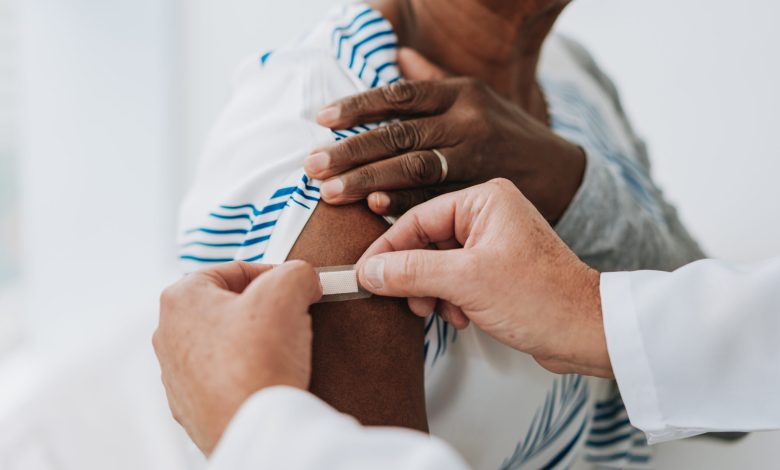Clinical Trials for a Pancreatic Cancer Vaccine Are Underway – BlackDoctor.org


Pancreatic cancer is a strong enemy to Black health, and it often comes with a dismal prognosis. However, a new wave of optimism is surging with the exploration of innovative vaccine therapies. These clinical trials are promising for the future of pancreatic cancer treatment, offering a potential path toward a more effective approach to ending the disease.
Scientists at Memorial Sloan Kettering Cancer Center are testing a special kind of vaccine made with messenger RNA, or mRNA (similar to the technology used in COVID-19 vaccines). This vaccine is designed to help your body fight pancreatic cancer cells after surgery.
This study followed patients who received this vaccine for 3 years, and in some patients the vaccine boosted cancer cell immunity for up to three years. The patients who responded well to the vaccine had a lower risk of their cancer coming back.
The difference between this vaccine and traditional vaccines is that this one is designed to help your body fight cancer cells that are already there, after surgery. It is also personalized for each patient, based on their specific tumor.
Why Black Participation in Clincial Trials is Crucial
Pancreatic cancer disproportionately affects the Black community. Black Americans are diagnosed with pancreatic cancer at a nearly 20 percent higher rate than white Americans, and their five-year survival rate is significantly lower. This disparity highlights the need for increased research efforts focused on understanding and addressing the specific challenges faced by Black patients.
Here’s why increased participation of Black individuals in these vaccine trials is critical:
- Representation in Research: Clinical trials need to reflect the populations most affected by the disease. Including more Black participants ensures the vaccines are tested for efficacy and safety in a diverse group, leading to more generalizable results.
- Building Trust: Historically, Black communities have been underrepresented in medical research due to factors like mistrust in the healthcare system. Active participation in these trials can help build trust and empower the Black community to take ownership of their health outcomes.
- Tailoring Treatments: By including a diverse range of participants, researchers can gain a deeper understanding of how patients from different backgrounds respond to the vaccines. This knowledge can pave the way for tailoring future treatment strategies better to serve the Black community.
The ongoing vaccine trials mark a significant step forward in the fight against pancreatic cancer. While these trials are still in their early stages, the potential benefits are undeniable. By harnessing the body’s natural defenses, these vaccines offer a novel approach with the potential for long-term benefits. Increased participation from the Black community is crucial for ensuring the success of these trials and paving the way for a future where pancreatic cancer is no longer a death sentence.
To learn more about clinical trials for Black folks, discover our Clinical Trials Resource Center.




